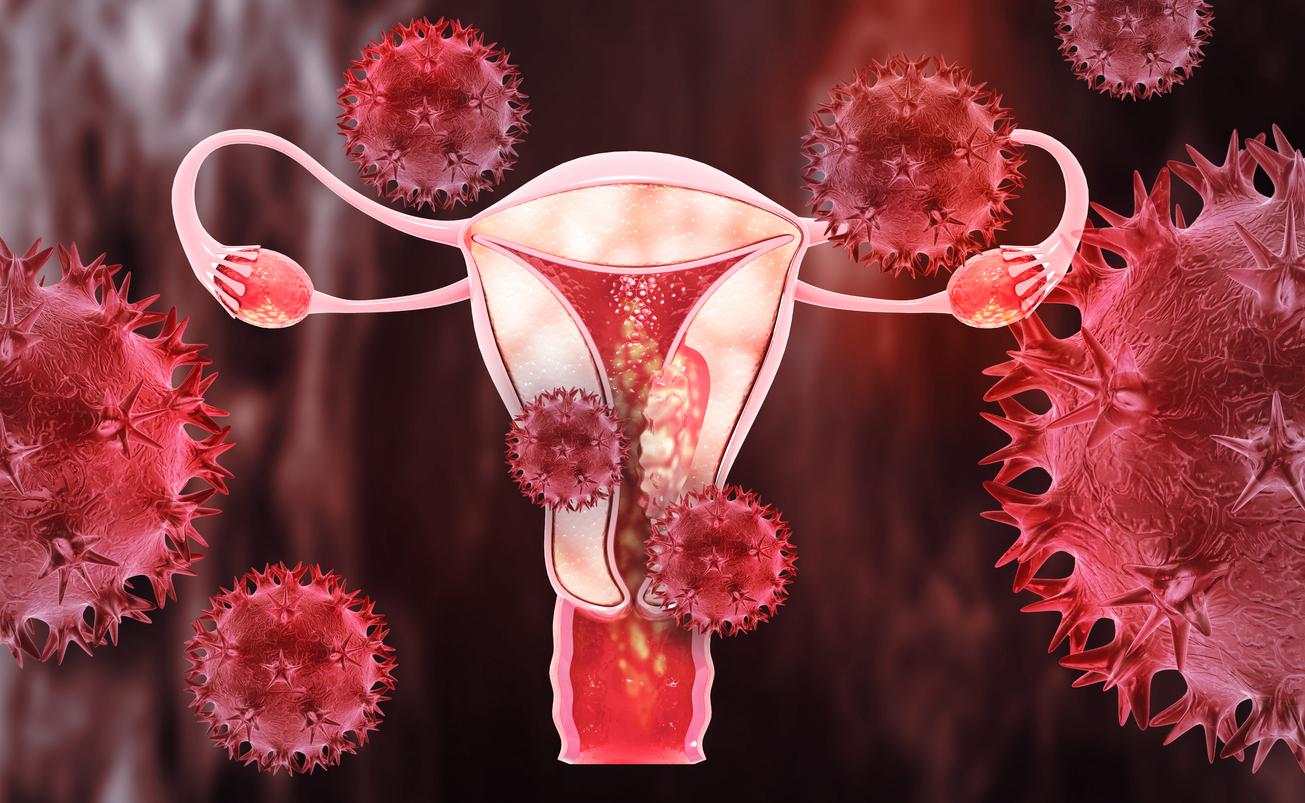Ovarian cancer, often called the “silent killer,” is one of the most serious forms of cancer in women. Due to its often subtle and nonspecific symptoms, it is often diagnosed at an advanced stage.

- Ovarian cancer, often diagnosed at an advanced stage due to subtle symptoms, can present with digestive problems such as bloating, abdominal pain and changes in bowel habits.
- Alertness to these symptoms and early detection are crucial to improve the chances of survival.
- See a doctor if you experience persistent digestive upset, as early detection can make a big difference in the treatment of ovarian cancer.
Ovarian cancer develops in the cells of the ovaries, the female reproductive organs responsible for producing eggs. There are several types of ovarian cancer, but epithelial carcinomas are the most common. These cancers start in the tissue that covers the outside of the ovaries. Other types include stromal tumors, which start in the supporting tissue of the ovary, and germ cell tumors, which start in the egg-producing cells.
Risk factors for ovarian cancer include age (most cases occur after menopause), family history of ovarian or breast cancer, genetic mutations (such as BRCA1 and BRCA2), and long-term use of hormone therapy.
Digestive disorders: an overlooked symptom of ovarian cancer
THE symptoms of ovarian cancer are often vague and can easily be confused with benign gastrointestinal conditions. Digestive disorders, in particular, are frequently reported by women with this disease. The following are the main digestive disorders associated with ovarian cancer:
1. Abdominal bloating:
- A feeling of bloating and swelling in the abdomen, often described as a “full belly” sensation, even after a light meal. This symptom is due to the accumulation of fluid (ascites) in the abdominal cavity.
2. Abdominal or pelvic pain:
- Persistent pain in the abdominal or pelvic area may indicate an ovarian tumor. This pain may be dull or sharp, and it does not go away with time.
3. Loss of appetite and rapid feeling of satiety:
- Women with ovarian cancer may experience a loss of appetite or feel full quickly after eating small amounts. This symptom is related to the pressure the tumor puts on the digestive organs.
4. Digestive problems:
- Digestive problems such as indigestion, nausea, and vomiting can also be signs of ovarian cancer. These symptoms are often mistaken for common gastrointestinal problems.
5. Changes in bowel habits:
- Changes in bowel habits, such as constipation or diarrhea, may occur. These changes may be caused by pressure from the tumor on the intestines.
6. Increase in abdominal size:
- An enlargement of the abdomen, sometimes associated with weight loss, is an alarming symptom. Fluid accumulation and tumor growth may be the cause.

The importance of screening and early diagnosis
Early detection of ovarian cancer is crucial to improving survival rates. Unfortunately, there is no effective routine screening test for this disease, as there is for breast or colorectal cancer. Doctors rely primarily on self-reported symptoms, pelvic exams, transvaginal ultrasounds, and blood tests to detect tumor markers such as CA-125.
Women should be especially attentive to any unusual changes in their health, especially persistent digestive disorders. If you have one or more of the symptoms described, it is essential to consult a doctor without delay. Early diagnosis allows treatment to begin more quickly, thus increasing the chances of success.
Ovarian cancer is a serious disease that often presents with subtle symptoms, particularly digestive disorders. Being vigilant and aware of these symptoms can lead to earlier diagnosis and improve your chances of survival. If you experience persistent digestive upset or any other suspicious symptoms, consult a healthcare professional for screening. Early detection is essential to effectively combat this dreaded disease.

















